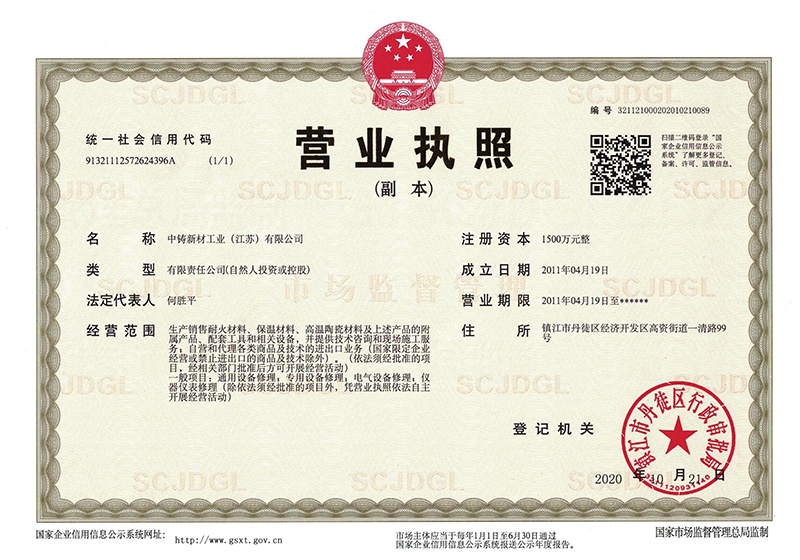News
SINO-FOUNDRY—professional refractory manufacturer
Why Coil Grout is Essential for Enhancing Metallurgical Processes
2025-07-07
Why Coil Grout is Essential for Enhancing Metallurgical Processes Introduction to Coil Grout in Metallurgy In the realm of metallurgy, particularly when dealing with non-ferrous metals such as copper, the optimization of processes is vital to achieving superior quality and efficiency. One crucial component that plays a pivotal role in these processes is coil grout. This article delves into the nat
Why Coil Grout is Essential for Enhancing Metallurgical Processes
Introduction to Coil Grout in Metallurgy
In the realm of metallurgy, particularly when dealing with non-ferrous metals such as copper, the optimization of processes is vital to achieving superior quality and efficiency. One crucial component that plays a pivotal role in these processes is coil grout. This article delves into the nature of coil grout, its properties, and why it is indispensable in enhancing metallurgical operations.
The Science Behind Coil Grout
What is Coil Grout?
Coil grout is a specialized material used in metallurgical processes, primarily for the maintenance and reinforcement of equipment that utilizes thermal conduction. It is designed to fill voids, improve thermal conductivity, and enhance the overall stability of metallurgical installations.
Key Properties of Coil Grout
Coil grout possesses several unique properties that make it suitable for metallurgical applications:
- **High Thermal Conductivity**: This property allows for efficient heat transfer, which is crucial in metallurgical processes that require precise temperature control.
- **Low Shrinkage**: Minimizing shrinkage during curing ensures that the grout maintains its integrity and forms a stable bond with the surrounding materials.
- **Chemical Resistance**: Coil grout is often resistant to various chemicals and contaminants, making it ideal for harsh metallurgical environments.
The Importance of Coil Grout in Metallurgical Applications
Enhancing Thermal Management
In metallurgical processes, maintaining optimal temperatures is essential for achieving desired metal properties. Coil grout enhances thermal management by ensuring effective heat transfer between various components. By filling gaps and voids, it minimizes thermal loss, thus improving energy efficiency.
Improving Equipment Longevity and Performance
Equipment failure in metallurgical operations can be costly and disruptive. Coil grout helps extend the life of essential machinery by reinforcing joints and connections, preventing wear and tear. This reinforcement translates to improved performance and reduced downtime, which is particularly important in high-demand environments.
Applications of Coil Grout in Metallurgy
Use in Copper Production
Copper metallurgy often involves complex processes that can benefit significantly from the use of coil grout. By enhancing thermal conductivity and providing structural support, coil grout facilitates more efficient smelting and refining processes, resulting in higher-quality copper.
Applications in Casting and Molding
In casting processes, coil grout serves to enhance mold stability and thermal efficiency. By ensuring that molds remain intact and maintain proper temperatures, coil grout significantly improves the quality and consistency of cast metal products.
Coil Grout in Heat Exchangers
Heat exchangers are critical components in metallurgical processes. Coil grout enhances their performance by improving heat transfer rates and ensuring that the system operates efficiently.
Advantages of Using Coil Grout in Metallurgical Processes
Cost Efficiency
Investing in coil grout can lead to long-term cost savings. By reducing equipment failure rates and improving energy efficiency, metallurgical operations can see a decrease in maintenance and operational costs.
Enhanced Quality of Metal Products
The use of coil grout directly influences the quality of the final product. By ensuring consistent thermal management and structural integrity, coil grout plays a role in producing higher-quality non-ferrous metals.
Environmental Considerations
Incorporating coil grout into metallurgical processes can also contribute to sustainability efforts by optimizing energy use and reducing waste. As industries strive to minimize their environmental impact, using effective materials like coil grout aligns with these goals.
Choosing the Right Coil Grout for Your Metallurgical Needs
Factors to Consider
When selecting coil grout, it is essential to consider several factors, including:
- **Thermal Conductivity Requirements**: Different applications may necessitate varying levels of thermal conductivity.
- **Environmental Conditions**: The chemical and thermal environment in which the grout will be used can influence the choice of material.
- **Application Method**: Some grouts may require specific application techniques or curing processes.
Common Types of Coil Grout
Various types of coil grout are available, each tailored for specific applications. Common formulations include:
- **Epoxy-based Grouts**: Known for their strong adhesion and chemical resistance, these are often used in harsh environments.
- **Cementitious Grouts**: These are suitable for applications requiring a high degree of stability and lower thermal conductivity.
Best Practices for Applying Coil Grout in Metallurgical Processes
Preparation and Application Techniques
Proper preparation is crucial when applying coil grout. This includes cleaning surfaces to remove any contaminants that could impede adhesion. Additionally, following manufacturer guidelines for mixing and application can significantly affect performance.
Post-Application Curing and Maintenance
After application, allowing adequate curing time is essential to achieve optimal performance. Regular maintenance checks should be conducted to ensure that the grout remains intact and effective throughout its lifespan.
Frequently Asked Questions (FAQs)
1. What is the primary purpose of coil grout in metallurgy?
Coil grout is primarily used to enhance thermal conductivity and reinforce equipment, thus improving the efficiency and longevity of metallurgical processes.
2. Can coil grout be used in high-temperature applications?
Yes, many formulations of coil grout are designed to withstand high temperatures, making them suitable for various metallurgical applications.
3. How does coil grout affect the quality of metal products?
By ensuring consistent thermal management and structural integrity, coil grout contributes to the production of higher-quality metal products.
4. Is coil grout environmentally friendly?
Many coil grouts are designed to optimize energy use and reduce waste, aligning with sustainability efforts in the metallurgical industry.
5. How do I choose the right coil grout for my operations?
Consider factors such as thermal conductivity requirements, environmental conditions, and application methods when selecting coil grout.
Conclusion
In summary, coil grout is an essential component in enhancing metallurgical processes, particularly in the production of non-ferrous metals like copper. Its unique properties and benefits, such as improved thermal management, equipment longevity, and enhanced product quality, make it a vital addition to any metallurgical operation. By understanding the science, applications, and best practices related to coil grout, metallurgical professionals can optimize their processes and achieve superior results. Embracing coil grout not only benefits individual operations but also aligns with broader sustainability goals within the industry.
Related News
2024-11-05
Zhongzhu New Materials Industry sincerely invites you to participate in the 24th International Forum and Exhibition on Recycled Metals.

WeChat public account

View mobile website
Address : No. 99, Yiqing Road, Gaozi Street, EconomicDevelopment Zone, Dantu District, Zhenjiang City
Fax : +86-511-85683066
E-mail : sales@sfr168.com
Website : https://www.sfr168.com
Copyright©2023 Sino-Foundry Refractory(Jiangsu) Co.,Ltd. Powered by:www.300.cn
Copyright©2023 Sino-Foundry Refractory(Jiangsu) Co.,Ltd.
IPV6 | SEO | Cloud Information



